- Home
- Karin Kallmaker
Wild Things
Wild Things Read online
WRITING AS KARIN KALLMAKER:
One Degree of Separation
Maybe Next Time
Substitute for Love
Frosting on the Cake
Unforgettable
Watermark
Making Up far Lost Time
Embrace in Motion
Wild Things
Painted Moon
Car Pool
Paperback Romance
Touchwood
In Every Port
All the Wrong Places
Sugar
WRITING AS LAURA ADAMS:
Christabel
The Tunnel of Light Trilogy:
Sleight of Hand Seeds of Fire
Daughters of Pallas:
Night Vision The Dawning
WILD THINGS
by
Karin Kallmaker
2004
1
There is no remembrance of former things.
-----ECCLESIASTES 1:11
I would have known Sydney anywhere. She had Eric's features — a square face defined by a firm jaw and a straight nose — softened with feminine curves in her cheeks. Still, I wanted to be absolutely sure, so I whispered in his ear and he nodded in agreement. His sister was seated two from the left of the podium and was in animated conversation with the woman seated to her right.
"She's lost weight," Eric whispered back.
"You needn't have been so secretive about who your sister is," I said. Eric rolled his eyes. "You might have mentioned it sooner."
He shrugged, and I could tell he didn't want to talk about it. I also kept the tensions in my own family private. Perhaps when we left this middle stage of dating and made some sort of declaration we might talk about our families more. For now it was enough to me that he had asked me to come with him this evening as Sydney received the prestigious Roebuck Award for, as explained in the dinner program, "Dedication, Caring, and Unwavering Commitment to the Betterment of Chicago's Neighborhoods."
The program acknowledged Sydney Van Allen's many contributions to underserved areas in Chicago, including extensive pro bono representation of community organizing groups. As an alderwoman, she had written Measure D, a long overdue and narrowly approved reform of the way money is allocated among Chicago's many social and public works departments. I had voted for it and had kept that fact to myself at home, knowing that both of my parents had voted against it. She was definitely a rising star in the Chicago Democratic party. A fellow history professor had told me, and anyone else who would listen, that what this state needed was more women in the Illinois senate. Women like Sydney Van Allen. I hadn't realized until tonight that Eric was Sydney's older brother. There were a lot of Van Allens in Chicago.
The chairman of the Roebuck Foundation concluded his remarks and introduced the next speaker. I'd been to many such dinners and had already turned my chair so I could look directly at the speakers and at least appear interested in every word. Mentally, I reviewed my to-do list for tomorrow's classes and reminded myself to check with Library Services once again to see if any more of the reference books I'd requested had come in.
I interrupted my mental wanderings to applaud at the appropriate moments and then returned to my to-do list. When it was Sydney's turn to speak I gave her my full attention. I was curious about her because, for all that Sydney looked like Eric, she was the lone Democrat from a family that had voted Republican since the Magna Carta.
I glanced at Eric as she began to talk. His hazel eyes were bright, his jaw set, and his head held high. He looked as fiercely proud as a big brother could be.
"The problem with awards," Sydney was' saying, "is that winning one implies someone else lost. It also implies that winning is an individual effort, which in my case couldn't be farther from the truth. Perhaps some of my hours were long. Certainly my law partners would like me to have a client I can bill from time to time." Shouts of laughter came from the table next to us. Sydney's law partners, obviously. When it died down she continued, "There were days when it didn't seem possible that anything would ever change. But then something would happen to perk me up. Like one member of my incredibly valuable staff staying up all night to research the precedent that won the Arbor Apartment Cooperative case. Or a law clerk who expected litigation experience instead offering to do safe-escort service during the blockade at Planned Parenthood last summer. And another ringing every judge in the state on a Sunday — with perfect golfing weather I might add — to find one who would sign the injunction, an act that hardly endeared him to potential future employers. So it doesn't seem right somehow to accept an award of this magnitude for work I was going to do anyway and had an amazing amount of help doing." She smiled, and I recognized the charming quirk of Eric's mouth. "But my name's on the thing so I guess I'll take it."
She spoke for another fifteen minutes, taking time to tell a brief story about each of five people she felt had made her work easier. She told funny and touching stories in a steady voice a few tones higher than Eric's low tenor.
When she finished speaking I joined Eric in standing and applauding enthusiastically. Sydney shook hands with the chairman, then her gaze sought out Eric. She smiled at him with genuine affection, then grinned as Eric bowed slightly, touching his forehead in a gesture of homage.
Eric and I took our seats again and settled in for the final speech. I had enjoyed Sydney's wit and Eric's obvious pleasure. Now bored with my unending to-do list, I studied Sydney instead. Her brown hair had hints of gold and red, just like Eric's, and her jaw, though not so pronounced, looked as if it could set into the same stubborn lines Eric's sometimes took. Her laugh was higher and seemed to come more easily than his, and her hands were long and graceful. Eric's hands were large and beefy, the only things about him that weren't elegant, and he tended to put them in his pockets whenever possible.
I studied people at the tables around us as well, looking for anyone I might know. I spotted another University of Chicago associate professor and recognized several more faces from campus, though I couldn't place them. They weren't in liberal arts, that I knew.
The last speaker concluded and, during the final, somewhat weary applause, I folded my dinner napkin and took my last look around the room. People were shrugging into suit jackets and dresses swirled, and bright chatter was filling the banquet hall. Out of all that noise and motion I saw one particular face for perhaps two seconds.
It was enough. I heard her whisper from the past, Say that you want me.
* * * * *
"Sydney, this is Faith."
"It's a pleasure and an honor," I said. I hoped that my expression and slightly clammy hands didn't reveal my churning stomach and pounding heart.
"Likewise, certainly," Sydney said. Our handshake lasted long enough to surpass mere politeness. I knew that Sydney must meet hundreds of people a week, but her warm grasp was welcoming. "I very rarely meet any of Eric's special friends."
It was a diplomatic choice of words. Eric and I were close friends. Perhaps she spoke with him enough to know we weren't lovers. I had ceased to wonder at Eric's lack of sexual demands by learning that, despite some emancipated thinking about women's roles, he was old-fashioned about sex. I appreciated that and remained quite relieved. I wasn't ready for intimacy with him.
I murmured something appropriate. My distress at the face I'd glimpsed receded under the warmth of Sydney's welcome; it did not go away entirely.
An officious-looking aide of some sort hovered at Sydney's elbow. When she finally glanced at him, he whispered something and gave Eric and me a dark-eyed glance that implied Sydney had more important people to cultivate. Sydney looked annoyed but resigned.
"Eric, if I don't mingle John the putada will have an aneuyism," The clean-cut man at her elbow
snorted and muttered something under his breath in Spanish. Sydney glared at him and I had the feeling they interacted this way all the time. "Besides, chatting just isn't enough. Why don't you and Faith come to my place for dinner Sunday evening? Make it six and casual. It's been too long since we had a good talk."
Eric glanced at me and smiled at my eager nod. "That would be great," he said. Then, as if he couldn't help himself, he swept Sydney into his arms for a hearty embrace. "I'm so proud of you," he said. "I mean it."
Sydney had tears in her eyes when he let her go. She wished me a pleasant evening, then turned to meet two men the persistent John had ushered up to her.
Braced by Eric's protective yet undemanding hand on my back, and the affectionate exchange I'd just witnessed, I felt able to face the banquet hall. It had emptied somewhat and I kept my gaze lowered, not wanting to risk seeing that face again. I didn't want to remember or be the person I had been then.
Eric was quiet in the car and seemed content with our comfortable silence. I was never troubled by his driving, even in the worst the Chicago highways had to offer. The Kennedy Expressway was slow but not distressingly so. I hoped he took my silence for the quiet mood of someone who had had a pleasant evening. It had been pleasant, with one exception.
He saw me to my door and refused my offer of coffee, as he usually did. Only occasionally did he brave the chill setting of my parents' sitting room. When he did venture inside, he went out of his way to charm them, but it took effort.
He kissed me in his usual way, with a dispassionate sweetness. Cupping my cheek, he said, "I'm glad you'll get to know Sydney. I want you to meet the rest of my family."
If my heart hadn't already been beating hard from panic, it would have leaped into double time. Meeting his family was a big step and now, my mind beginning to flood with long-buried memories, I wasn't sure I was ready. I nodded, however. "I'd like that."
I took a deep breath of the cooling night air as I watched Eric drive away.
* * * * *
"You're not a beautiful woman, Sydney, but I could still go for you in a big way."
Sydney favored Mark O'Leary with one of her coolest stares. The noise of the post-award ceremonies reception was only a dim clatter. "Flattery won't get you anywhere with me."
Mark didn't miss a beat. "That's the point of this little meeting, isn't it?"
Sydney turned her head slightly to look at her longtime political mentor. Alan Stevens merely quirked an eyebrow, but Sydney had no trouble interpreting his meaning. He was saying I told you so.
She looked back at Mark, who yanked his cigar out of his mouth and guffawed. "Well, Alan, I do believe we've unsettled the Ice Queen."
"Not at all," Sydney said. "I knew this conversation was inevitable." Mark was built like a teamster, and cigar smoking had left his teeth and hands yellow. She controlled her urge to shudder. She couldn't afford to make an enemy of Mark O'Leary. He didn't hold an official position with the Illinois Democratic party, but it didn't matter. If Mark opposed you, you were done. If he supported you, you were in. If he was tepid, you could go either way. She was aiming for tepid.
"So it's true," Mark said. The hotel guest chair creaked under his bulk. "You're a dyke."
She raised her eyebrow in a small gesture of distaste at the sound of dyke in his Sidney Greenstreet mouth, then nodded coolly.
"I've never understood why good-looking women go that way, have you, Alan?"
Alan shrugged. "Perhaps because you're the alternative."
Mark guffawed and slapped his knee. "That's a good one." His laughter subsided, and Sydney realized he was trying to make her think he was a buffoon. He was probably hoping she'd think she didn't need an old fool's support and tell him off.
"Gloria Steinem," Sydney said.
"You always could name a quote," Alan said. "Try her, Mark. She can tell you where just about any quote comes from."
"That so?" Mark studied her closely for a moment. "Which are you, a dunce or a rogue?"
"Emma Goldman," Sydney said smoothly. "Her third option was an anarchist. I'm none of the above."
"Then what are you?" He made the question sound flippant, but Sydney knew it wasn't. Her answer was everything.
"I'm an ambitious woman who wants to make a positive difference in people's lives. I can play political games, but the game means nothing to me next to the end result."
'Winning?"
"Doing the right thing."
Mark grimaced at his cigar. "You're one of those do-gooder dykes."
"Whether I'm a lesbian is irrelevant. I don't intend to let it hamper me in any way."
"So you've got a nice comfortable closet."
"No," Sydney said firmly. "I am not involved with anyone and haven't been for years. I intend to keep it that way until people realize that my sexuality is both as relevant and irrelevant as the color of my skin. It influences everything I do and it influences nothing I do."
"You've lost me," Mark said, waving his hand dismissively. "I'm Joe on the street, and I don't understand a thing you've said."
Sydney lifted her chin slightly. "When it matters, it matters a lot. My thinking on civil rights is heavily influenced by my politics as a lesbian. With me so far?" Mark nodded with a frown, probably not liking her tone. "My thinking on government efficiency and spending wisely but within our means is not at all influenced by whom I sleep with. Is that clearer?"
Mark gave Alan a baleful glance.
"Don't blame it on me," Alan said. "I told you how she was. And she sees right through you, Mark."
Mark glanced sharply at her. "You think you can talk that way to me?"
"No, but I might talk that way to Joe on the street," she said sardonically.
"Not if you want to be a senator," Mark said.
Sydney couldn't control a nervous swallow. Mark saw it and smiled his terrible smile again. "Now that got a reaction. So are you telling me that I'm not gonna pump some money into your campaign only to have some big sex scandal waste it all?"
"There will be no sex scandal. However, it's possible an opponent might find out about my past relationships with women and use it. And if anyone asks me outright, I won't lie."
"You'd better learn to evade, missy." Mark's eyes took on an eerie gleam and Sydney controlled another shudder. "There are lots of people who don't want a dyke in the statehouse."
"There are already a few there," Sydney said.
"On the house side, who cares? They come and go. But senators are different. They stay. They go on to congress, they become governors and vice presidents."
Sydney leaned forward. "My life since sobriety can bear examination. The skeletons I accumulated were displayed in public when I ran for alderwoman and in the end, no one cared. Everyone knows I'm a recovering alcoholic. Everyone knows my father is richer than God and I'm not destitute myself. Inevitably, everyone will know I'm a lesbian. But by then, they will also know I don't have my hand in the cookie jar, I don't go on junkets, and I'm not trying to fuck the taxpayers or my aides."
Mark leaned back in his chair, his gaze only leaving Sydney's when he turned to look at Alan.
"If it stays that way, we can talk about the preliminary party ballot." He looked back at Sydney. "But if it doesn't, if I hear about you in anything like a compromising situation, then I'll bounce your ass out of this state."
Sydney stood up slowly. "I understand you. Understand this: I need your support, but I won't be bullied into anything. I am my own judge."
"You calling me a bully?"
Sydney realized that he was oddly pleased and felt a huge wave of relief sweep over her. "Yes. And I think you like it."
He looked at Alan and laughed. "You trained her good."
Alan stood up, and the two men shook hands. "She was born this way."
Mark stuck his cigar back in his mouth. "The winners always are."
* * * * *
Sydney examined her silk blouse, then dropped it into the dry cleaning hamper. Ma
rk O'Leary would never know the amount of sweating she had done during their interview. She smiled at herself in the mirror. All she had to do to stay on Mark's good side was what she was doing already — stay focused on her law practice and political career. No distractions. She was already so good at it.
* * * * *
"We're in the kitchen, Faith."
The last thing I wanted was a postmortem of my evening. I needed to be alone. The wound I had thought healed needed to open and drain again. But I went to the kitchen.
I immediately sensed a family crisis. My mother had been crying and now had one hand pressed to her heart as if it were failing, which wasn't in the least likely. My father looked more grim than usual. Michael, with one arm wrapped around his chest as always, looked both stricken and annoyed.
"What is it? What's wrong?" I sat down and took my mother's hand.
Michael cleared his throat. "Abraham was in an accident and died last Friday."
I gaped at him.
My mother shook off my touch and dabbed at her eyes. "You would think that Mary Margaret would have seen fit to tell us sooner."
I bit back a reminder that my little sister had been told never to mention her husband's name in this house. A lump formed in my throat. Huskily I asked, "How did it happen?"
My father's shrug was eloquent. "A car accident was all Mary Margaret said." Obviously he hadn't asked for details.
I sighed. "How is she coping? And the baby?"
It was my mother's turn to shrug. "I don't know. I never see my grandson. Perhaps that will change."
My eyes filled with sudden tears. Meg was widowed and left with a nine-month-old baby. I had never had a chance to get to know Abraham. Meg had met and eloped with him quickly and moved almost immediately to Philadelphia where he was going to law school. She had written to me a couple of times at my office, but the anger between her and our parents spilled over to the already troubled waters between the two of us. We had never been particularly close — I had been twelve when she was born — but to be widowed at twenty-two . ..
"It was your choice not to see Meg. You can't blame it on anyone else." Michael snapped his mouth shut, bis tone more vicious than usual. It was a byproduct of being in continuous pain as the burns on his arm and chest healed.

 Finders Keepers
Finders Keepers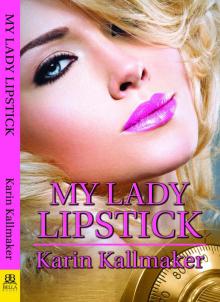 My Lady Lipstick
My Lady Lipstick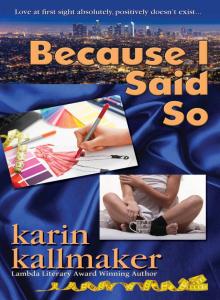 Because I Said So
Because I Said So Blue Collar Lesbian Erotica
Blue Collar Lesbian Erotica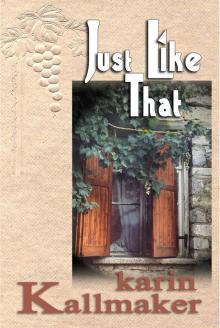 Just Like That
Just Like That In Deep Waters_Cruising the Seas
In Deep Waters_Cruising the Seas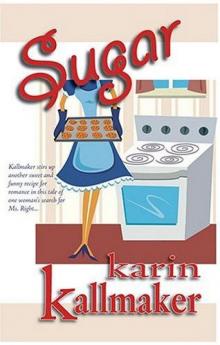 Sugar
Sugar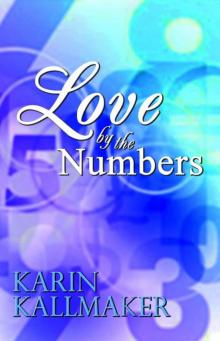 Love by the Numbers
Love by the Numbers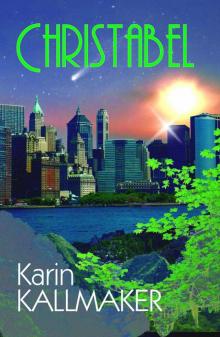 Christabel
Christabel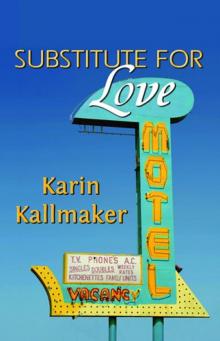 Substitute for Love
Substitute for Love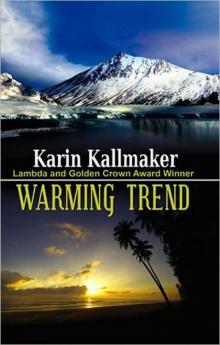 Warming Trend
Warming Trend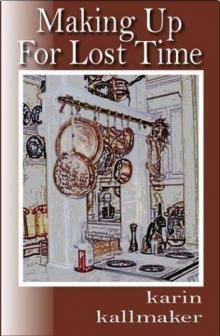 Making Up for Lost Time
Making Up for Lost Time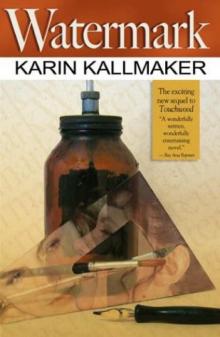 Watermark
Watermark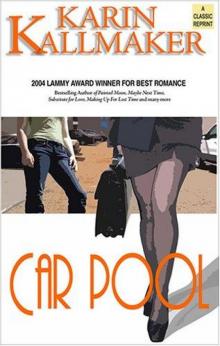 Car Pool
Car Pool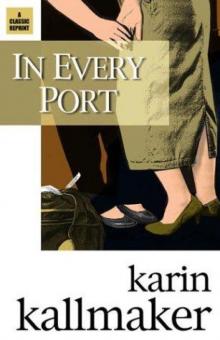 In Every Port
In Every Port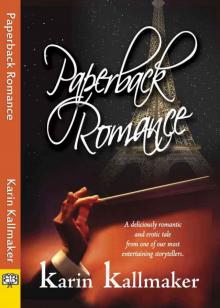 Paperback Romance
Paperback Romance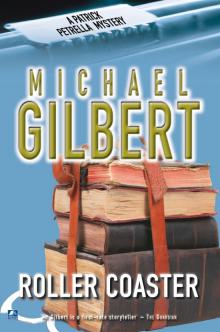 Roller Coaster
Roller Coaster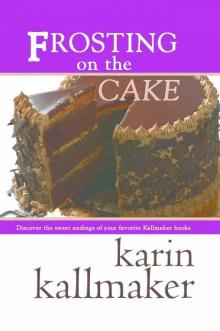 Frosting on the Cake
Frosting on the Cake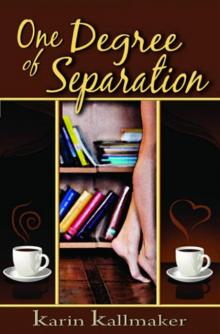 One Degree of Separation
One Degree of Separation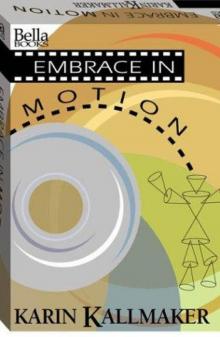 Embrace in Motion
Embrace in Motion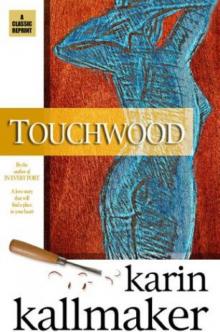 Touchwood
Touchwood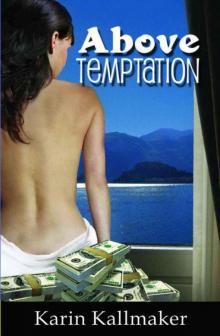 Above Temptation
Above Temptation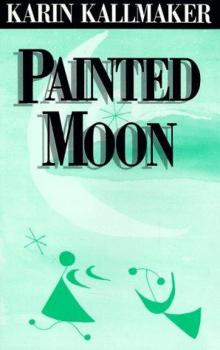 Painted Moon
Painted Moon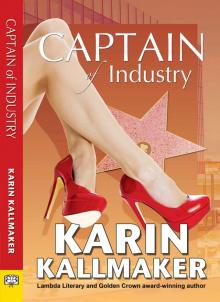 Captain of Industry
Captain of Industry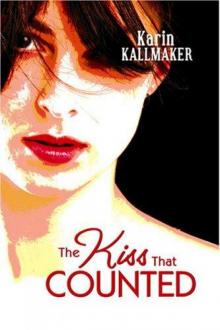 The Kiss That Counted
The Kiss That Counted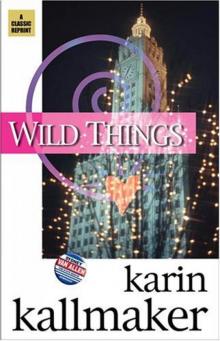 Wild Things
Wild Things